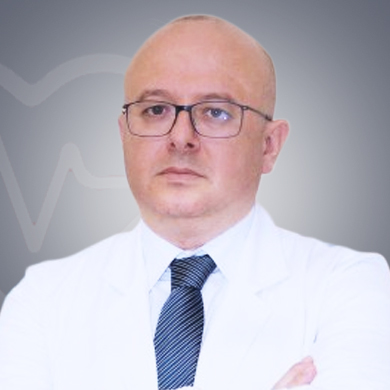
9 Years of experience
Speaks: English
A medical oncologist is trained to treat different types of cancer using chemotherapy and other medications, such as immunotherapy and targeted therapy. The medical oncologist designs a treatment plan after consultation with doctors from other disciplines. The doctor completely evaluates the nature of cancer and then treats cancer through various methods like chemotherapy, hormone therapy, and targeted therapy. Some of the conditions Dr. Mustafa Solak treats are:
The earlier doctors detect cancer, the sooner the treatment can start. So it is vital to know the common types of cancer and some of their warning signs. There are more than 90 types of cancer, and some of them are more common than others. This depends on your gender, age, and racial or ethnic group. Some of the symptoms that cancer may cause are:
You can find Doctor Mustafa Solak in the clinic/hospital from 11 am to 5 pm (Monday to Saturday). The doctor is not available on Sunday. Although the doctor is mostly available at the given time, call the doctor or his assistant to confirm his availability.
Some of the popular procedures that Dr Mustafa Solak performs are:
A medical oncologist uses chemotherapy for cancer treatment. It uses a combination of drugs to kill the cancerous cells in the body and prevents them from growing further. While chemotherapy could require a single drug, this is also given along with other drugs. Hormone therapy is used for the treatment of cancer that uses certain hormones to grow. It is effective in treating prostate and breast cancers. Hormone therapy slows or stops the rapid growth of cancer that uses hormones to grow.

Share Your Experience about Dr. Mustafa Solak

A medical oncologist is a specialist who is trained to treat cancer using chemotherapy or other methods like immunotherapy or targeted therapy. The medical oncologist also consults with other doctors from different specialty areas to design the treatment plan. They also remain in touch with cancer patients to manage their symptoms and side effects post-treatment. In cases of incurable cancer, a medical oncologist suggests palliative or hospice care for patients. The primary job of medical oncologists is to manage cancer.
A medical oncologist would suggest the below tests to be performed to diagnose cancer:
One of the most common test for cancer, biopsy is a sample of tissues extracted from a body part in order to examine it. A doctor recommends biopsy when a previous test suggests an area of tissues isn't normal.
A person needs to see a medical oncologist when he/she is diagnosed with cancer. Medical oncologist can help understand diagnosis as well as plan cancer treatment. You can also see a medical oncologist for any questions you have. You need to see a medical oncologist if you experience the symptoms listed below: